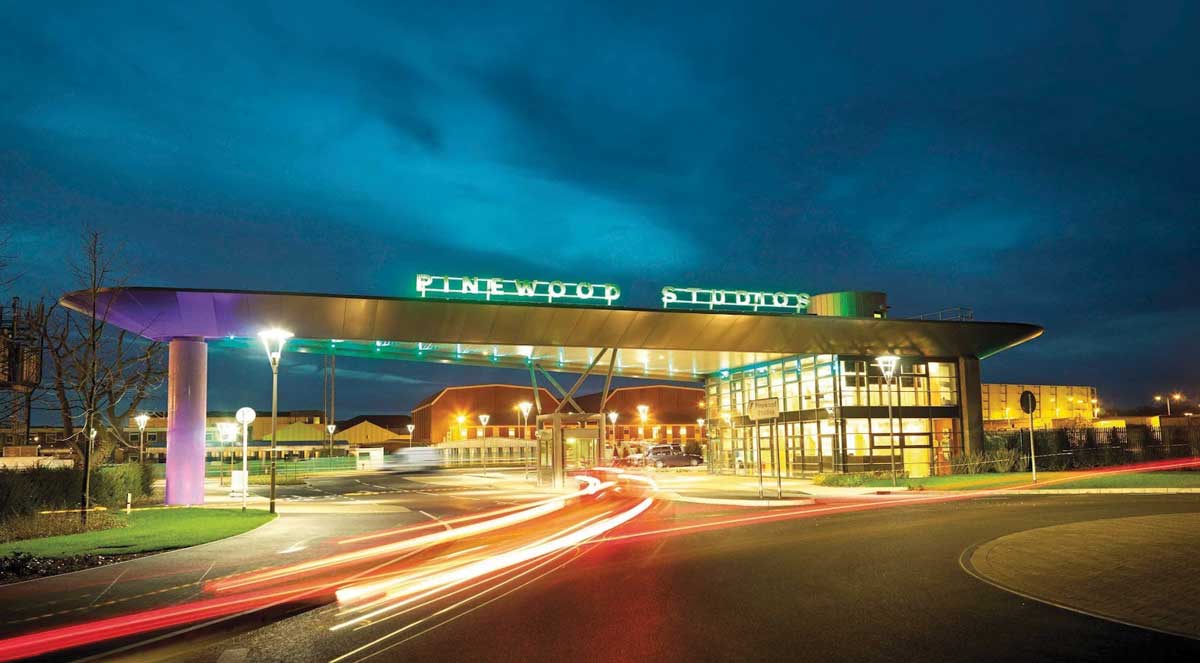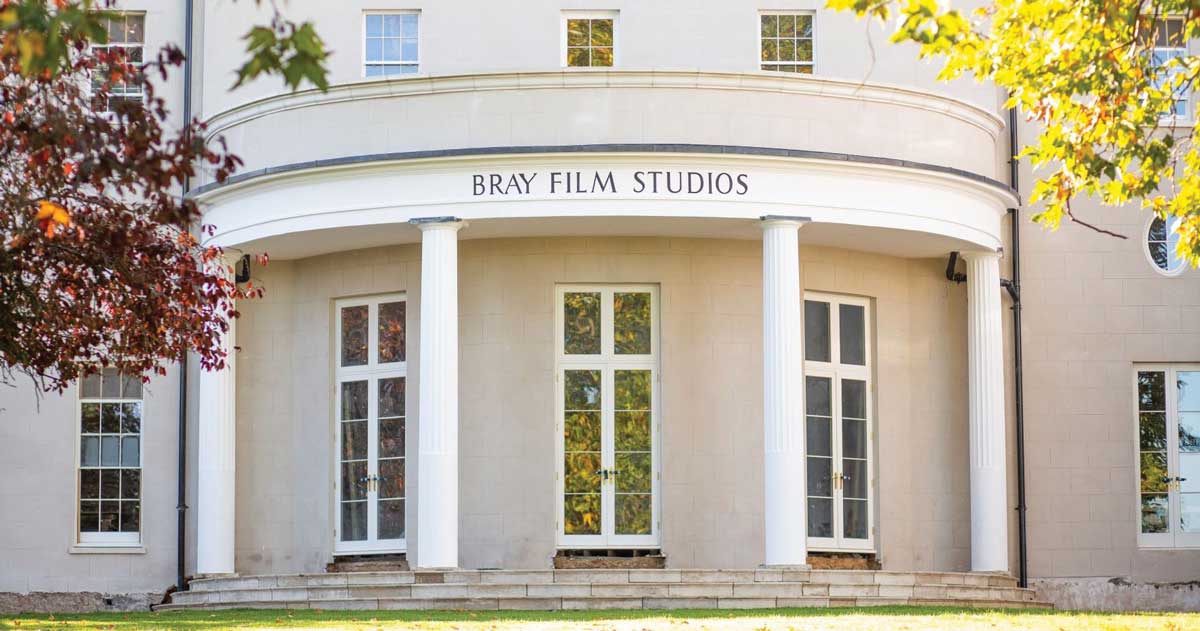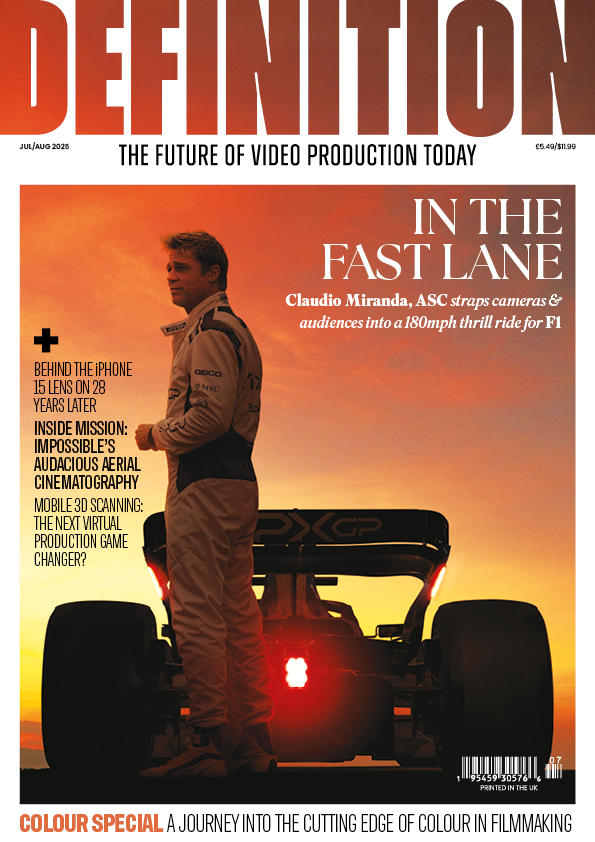
Green Shoots for UK Productions
Posted on Nov 27, 2024 by Samara Husbands
After a bumpy ride, is the production industry beginning the slow road to recovery? Will Lawrence reports
It is a sad truth that roads to recovery are invariably described as long. It’s even sadder to note that, for many in the UK film and TV production industry, that route has seemed almost endless. Surviving until next year has been the sole aim. Now, as that destination looms, has hope finally appeared on the horizon?
When surveying the UK film industry’s broader landscape, green shoots indeed appear to be sprouting. At the cinema, September brought a 21% upturn in box office sales compared to the same period last year – with a significant contribution from independent films – and big US productions continue to flock to UK studios, lured by tax incentives.
Disney, for one, recently announced plans to invest about $5 billion to make more TV shows and blockbuster films in Europe and the UK. This comes on the back of Deadpool & Wolverine, produced at Pinewood Studios, which racked up $900 million in global box office revenues by mid-August. The company already has a long-term lease at Pinewood, and is said to have spent around £3.5 billion on UK productions over the last five years.
Elsewhere, Amazon Prime Video has committed further funding to the UK with its acquisition of Bray Film Studios over the summer. Set on the River Thames, about 25 miles from central London, Bray Studios was the home of the Hammer horror films from the fifties onwards, as well as hosting iconic British movies like Alien and The Rocky Horror Picture Show. Amazon has used the Berkshire site since 2022, working there on both The Lord of the Rings: The Rings of Power and Citadel.
According to head of Prime Video and Amazon MGM Studios Mike Hopkins, the full acquisition ties in with the company’s plan to ‘produce more film and television in the UK’, and will create opportunities ‘with respect to jobs and skills training at all levels of the production process’.
This is somewhat positive news, although it offers cold comfort for most; those travelling the road without major studio support have endured a bumpy ride this year as well as the last. The end of the pandemic’s streaming boom, dwindling TV advertising, disruption from the writers’ strike and rising inflation have proved troublesome obstacles.
For those working on productions like TV dramas, for example, it’s been especially dire. At this autumn’s Royal Television Society conference in London, Channel 4 CEO Alex Mahon conceded that 2023 was ‘horrendous for indies, and this year hasn’t been much better’. While major film production has sped on ahead, a large number of independent filmmakers and TV producers have been left stranded by the roadside.

Thankfully, for those independent filmmakers still labouring on, assistance is finally on hand. Recognising the potential of UK film to be an area for economic growth, the government has announced the Independent Film Tax Credit (IFTC). Launched at this year’s London Film Festival (LFF), the IFTC will grant a relief of 53% on qualifying expenditure to first-time productions that have a budget of up to £15 million. Films with budgets of up to £23.5 million are also eligible, though the amount of relief will be tapered off.
“The speed with which the UK government has turned this around shows how vital this intervention is for independent film,” notes British Film Institute chair Jay Hunt. “It will have a game-changing impact across the whole UK screen sector,” she says, “both creatively and economically.”
Amy Jackson, producer of Oscar-nominated Aftersun, The Outfit and The End We Start From, agrees that the IFTC is ‘a vital intervention for the UK industry’. She notes that ‘making British indie films is tough’ but stresses the tax relief will give her the financial support to ‘explicitly focus on bringing stories by British talent to the screen’, while also building out co-production opportunities.
She also notes that the IFTC will make UK indie films a more attractive investment prospect for international partners and co-producers, and will bring much-needed backing to the independent sector across the board. In a bid to foster home-grown creativity, films qualifying for the IFTC must have a UK writer or director, or be certified as an official UK co-production.
Producing high-quality films on lower budgets is no easy feat, though there is now ‘a real opportunity’, state Tim Bevan and Eric Fellner, co-chairs of Working Title Films. Working Title is already focusing on smaller-budget productions. Examples include The Substance – which is doing well in domestic cinemas – and Alicia MacDonald’s new rom com CC: Emily, shot in Manchester earlier this year.
“Films need to cost less money, and they must be bolder in that space,” argues Fellner, speaking at this autumn’s LFF and referencing Working Title’s divisive hit The Substance by writer-director Coralie Fargeat. “We’re aiming to start making more under-$15-million movies.”
This is a positive move, despite what Bevan calls ‘a shyness at the studio level’ around more challenging films such as Fargeat’s. “But there’s an opportunity there,” he points out. “Right now, what the industry desperately needs is innovative new filmmakers and creative ideas.”
Any of these innovative new filmmakers seeking to take advantage of the IFTC will have further opportunities from the summer of 2025, following the launch of the Pinewood Independent Film Hub. Announced alongside the IFTC, the Hub plans to offer sound stages as well as production offices and workshop space in packages specifically tailored to smaller productions. “This is great news for the UK film industry,” says Paul Greengrass, director of News of the World, Jason Bourne and United 93. He notes that the move should ‘open the doors to new stories and talent’.

As well as services and packages to support lower-budget, independent films, the Hub will also offer filmmakers access to the wider Pinewood ecosystem – from camera hire and drone photography through to post-production facilities.
Pinewood is, of course, a jewel in the industry’s crown, and it’s fitting that the Buckinghamshire studio is supporting the government initiative. “Pinewood’s been home to a huge number of all-time-great movies,” says David Puttnam, who produced the likes of Chariots of Fire and Midnight Express. “It’s brilliantly appropriate for Pinewood to offer the next generation of filmmakers a home.”
Barbara Broccoli, producer of the James Bond franchise – synonymous with Pinewood – agrees, saying of the launch, “This is good for independent film in the UK. It’s essential for the British film industry that indie films get produced and exhibited.”
Indie film is, among other things, a breeding ground for talent. “A thriving independent film sector is a crucial part of the industry’s ecology,” notes Slow Horses executive producer Hakan Kousetta. “It’s where myself and many others started, and is essential if we are to continue to produce talent.” The Hub, he says, will offer ‘vital support for the British independent sector’.
Indeed, there is room for cautious optimism, says Bend It Like Beckham director Gurinder Chadha. “These measures send a strong message to independent filmmakers that we are valued and supported,” she says. “British cinema and screen industries contribute billions to the UK economy. It makes great business sense as well as cultural sense.”
The UK film industry is currently estimated at £1.36 billion, employing over 195,000 people, and the government has clearly identified the sector as a target for further investment and growth. For those who survive until 2025, the rocky road to recovery might just be evening out.
This feature was first published in the December 2024 issue of Definition.













